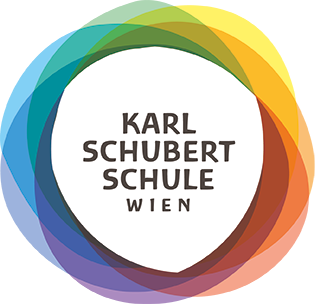Learning and Teaching -
An Artistic Process
Teaching at the Karl Schubert School is an artistic process. "You always have to come up with new ways of implementing the curriculum so that it is tailored to each student, so that everyone can participate," says Bernhard Hager, an educator at the Karl Schubert School. This requires a lot of creativity, a lot of freedom, a lot of imagination. And above all, an honest interest in each individual child. "We don't approach our students with a ready-made concept, but rather focus on the children and young people and pay attention to what abilities and questions they have," says teacher Markus Hildenbrand.
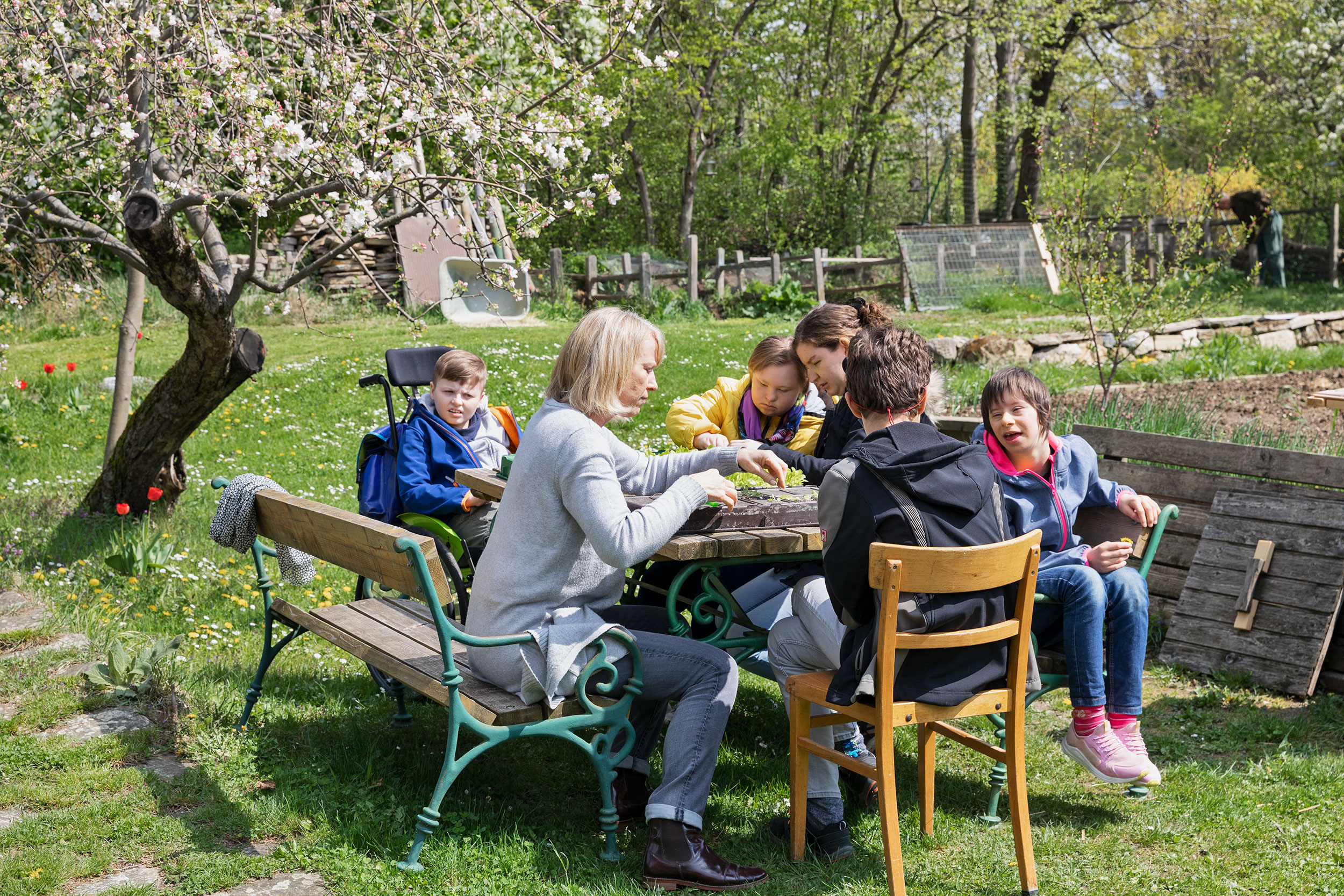
Lower and Middle School: Grades 1-9
This private special education day school follows a Waldorf curriculum modified for special needs education. The children and adolescents are taught in small classes (4-8 students) according to their special needs and abilities. The contents of the lessons, which reflect the developmental stage of the child, are prepared according to the individual abilities of the students and are taught through a variety of artistic and therapeutic methods. The school's focus is on practical life skills that build self-confidence and joy. With suitable progress, a secondary school diploma or transfer to other schools is possible.
Ideally, each class is led by the same teacher from the beginning of the lower school to the upper school. Teachers and children bond strongly with one another; they become a real community. The deep knowledge of the children gives the homeroom teacher the ability to tailor the instruction to the educational needs of the individual. The specialist subject teachers complement these efforts and take the place of the homeroom teachers during the vocational training phase (10th-12th grade).
Lesson Blocks
The main lessons are divided into lesson blocks. This allows the children to work on one and the same subject every day for several weeks. The lessons engage the children not only verbally by intellectual means, but also emotionally and through activity. In other words, movement, drive, and action are just as valuable teaching tools as sensation and thought are.
After the daily main lessons, there are grade-appropriate classes on specific subjects such as eurythmy, music, painting, sculpting, therapeutic painting, gymnastics, crafts, shop, and religion. Particularly noteworthy are the gardening classes, which also have therapeutic significance.
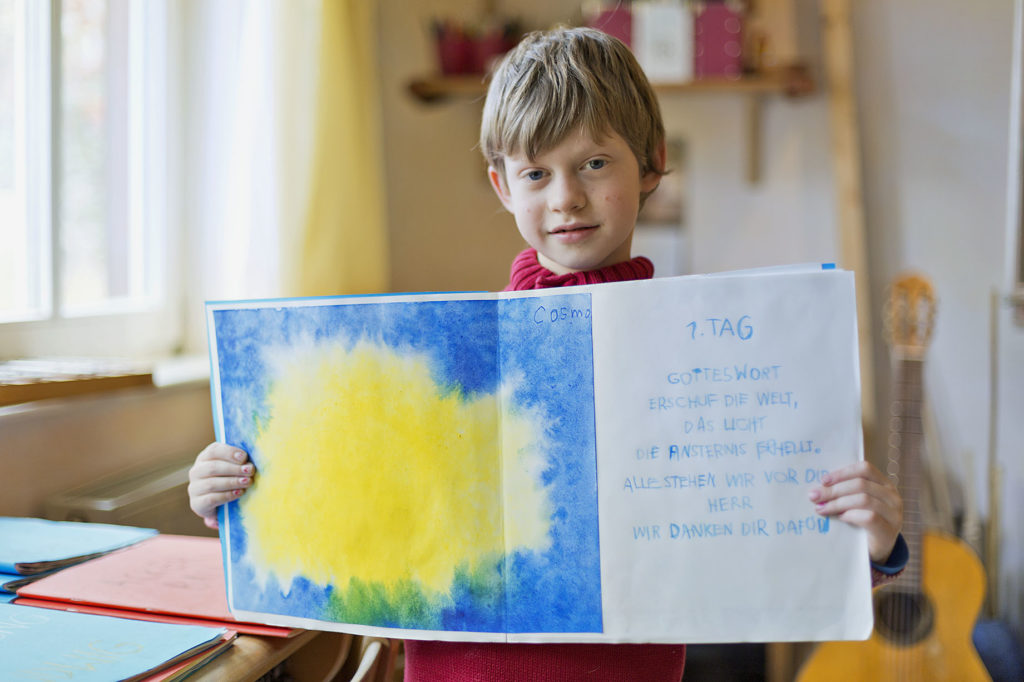
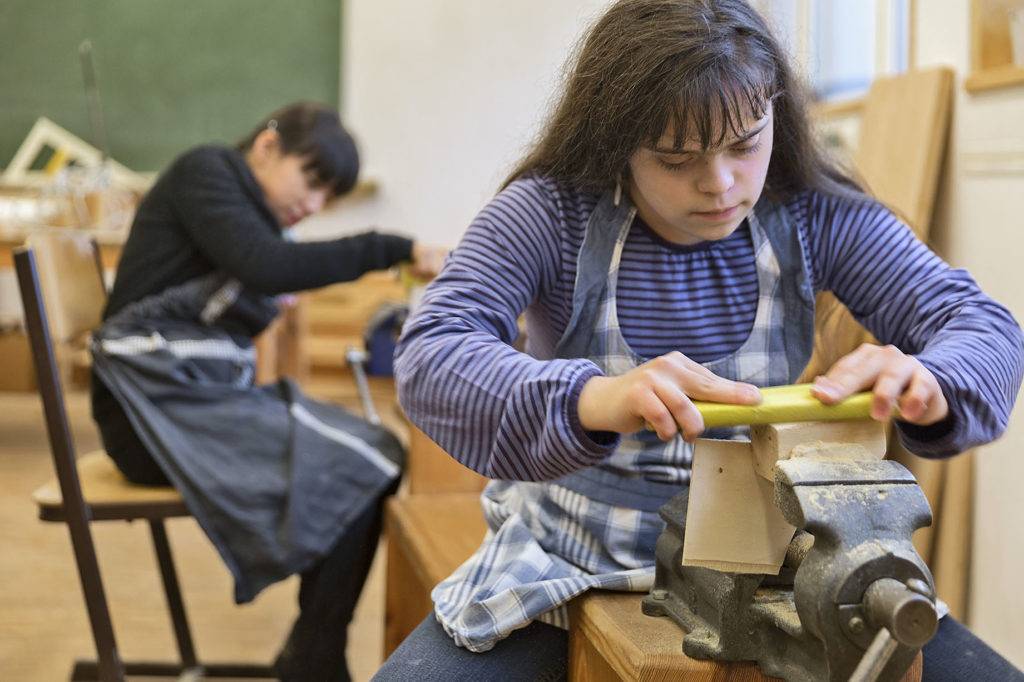
Vocational Training: Grades 10-12
The vocational training or career orientation phase, which spans the last three years of school, serves to allow students to consider possible career options. This period consists of an intensive exploration of and preparation for the path that the adolescents in need of soul care wish to follow as adults. Cognitive learning is reduced in favor of instruction in handicrafts. The adolescents try their hands at various tasks and are expose to a wide range of experiences, so that they are then able to make choices. "The students should be able to judge what is right for them, which field of activity is well suited for them," Bernhard Hager says of this important phase of life, which also focuses on developing good work habits such as diligence, accuracy, and punctuality.
Corresponding to the handicraft lesson blocks, the students also keep workbooks that establish a link to higher-level content such as natural history, geography, history, art, and mathematics. Art classes and individual therapies remain a part of the daily schedule.
Internships at secondary institutions enable the young students to choose and get to know their future field of work.
Together with the young people and their persons of trust, we develop concepts and perspectives for their future path in life.
Daily Schedule
Main lessons led by homeroom teachers, which cover writing, reading, arithmetic, human, animal and plant sciences, history, geography, physics, and chemistry.
- Subject-specific instruction by specialized teachers in drawing, painting, sculpture, eurythmy, music, theater, dance, sports, needlework, handicrafts, religion and horticulture
- Individual therapy and support
- Meals taken as a group (snack and lunch)
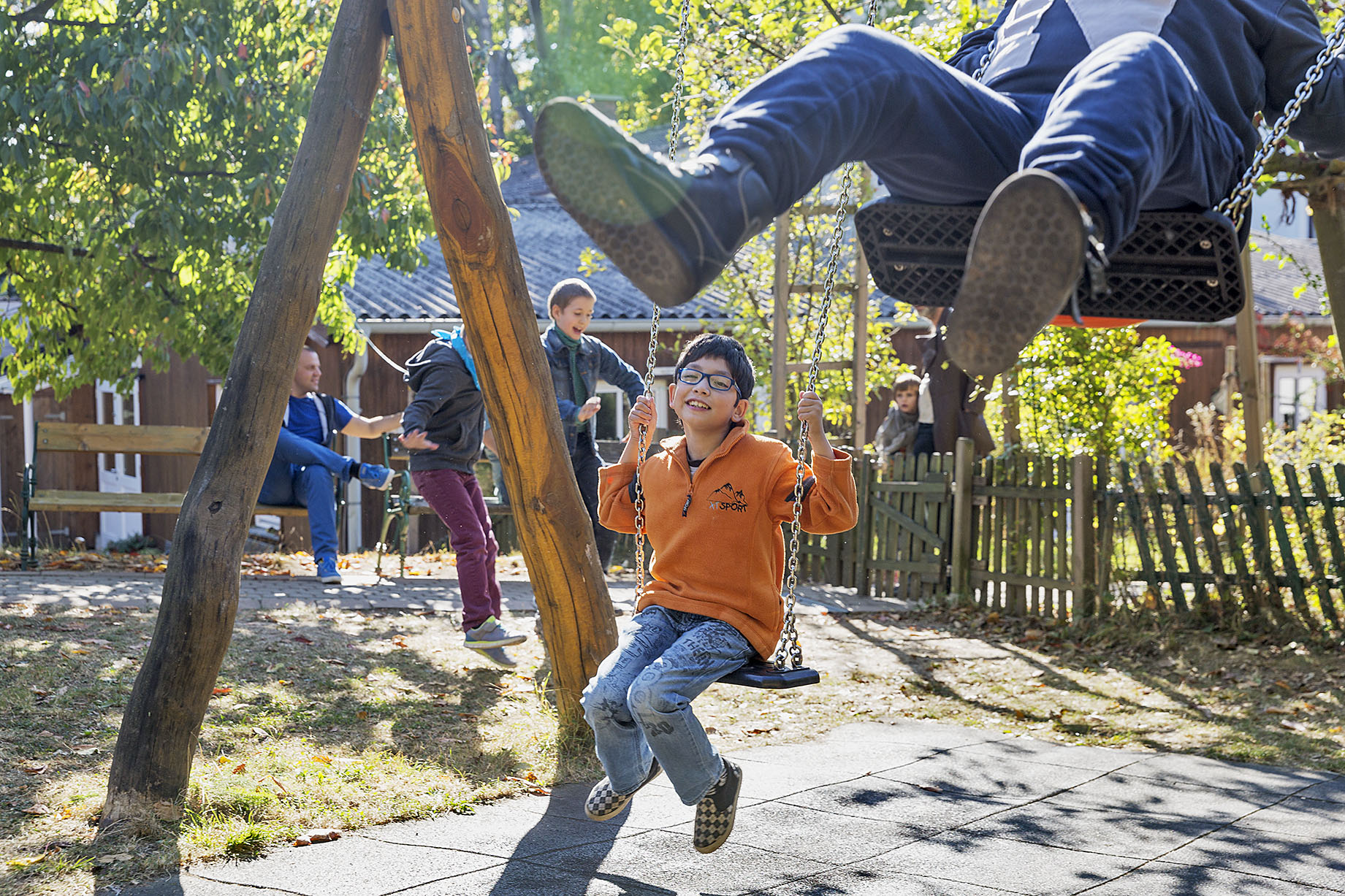
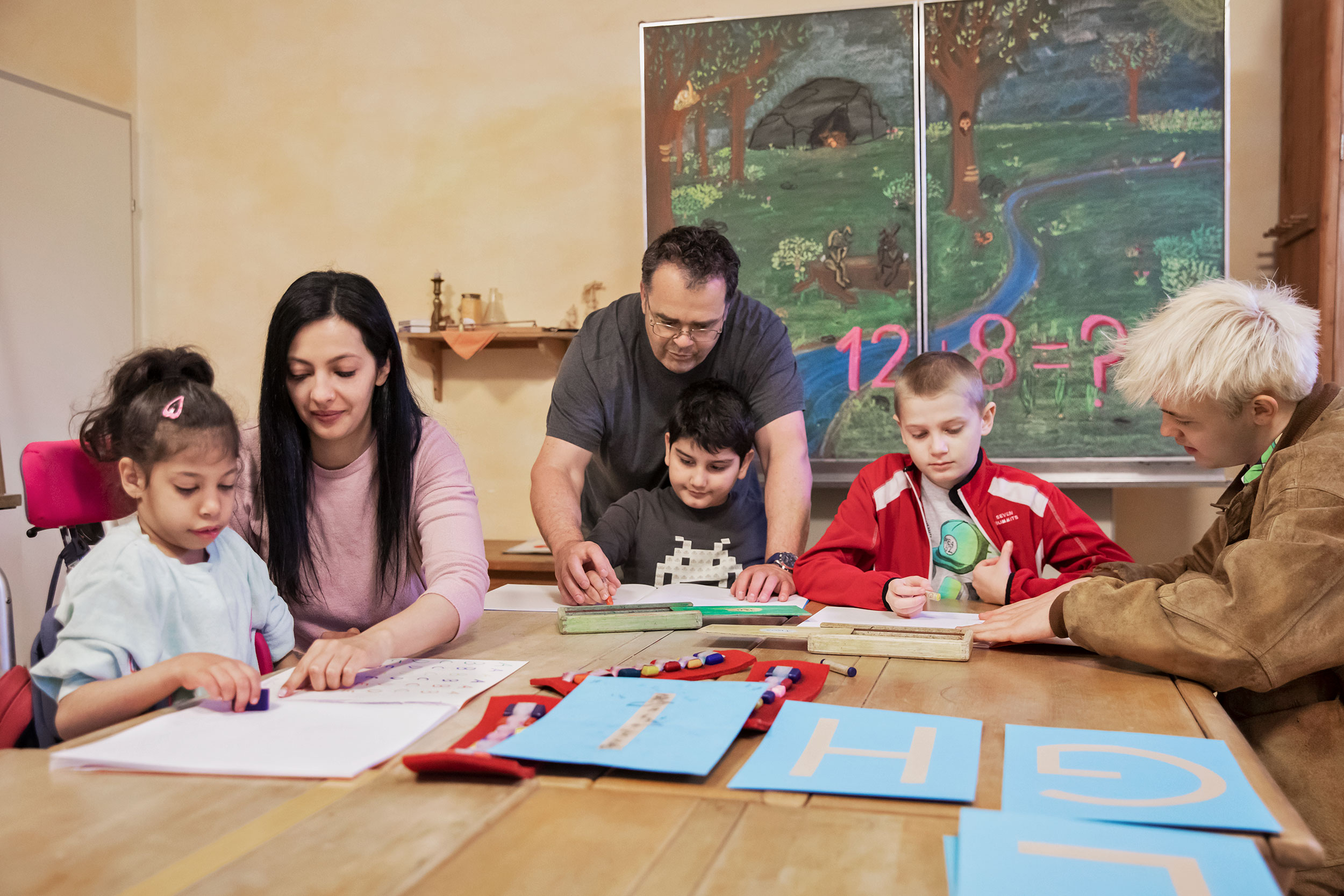
Hours
- Monday, Tuesday, Wednesday, Thursday from 7:45 am to 3:45 pm
- Friday from 7:45 am to 1:00 pm
Vegetarian snacks and lunch prepared fresh in our school kitchen are available for the students.
Ferienplan und Schulfreie Tage im Schuljahr 2025/26
First day of school
Mo. 01.09.2025 Schulschuss um 12:00 Uhr
Austrian National Holiday
So. 26.10.2025
Fall vacation
Sa., 25.10. bis einschließlich So. 02.11.2025
Immaculate Conception
Mo. 08.12.2025
Di. 23.12.2025; Schulschluss um 12:00 Uhr
Christmas holiday
Mi. 24.12.2025 bis Di. 06.01.2026
Schulbeginn im neuen Jahr
Mi. 07.01.2026
Semester break
Sa. 31.01. bis So. 08.02.2026
Fr. 27.03.2026; Schulschluss um 12:00 Uh
Easter vacation
Sa. 28.03.2026 bis einschließlich Mo. 06.04.2026
Public holiday
Fr. 01.05.2026
Ascension Day
Do. 14.05.2026
School-free day
Fr. 15.05.2026
Pfingstmontag
Mo. 25.05.2026
Corpus Christi
Do. 04.06.2026
School-free day
Fr. 05.06.2026
Letzter Schultag
Fr. 03.07.2026, Schulschluss um 12:00 Uhr
Summer vacation
Sa. 04.07.2026 bis So. 06.09.2026
Erster Schultag SJ 2026/27
Mo. 07.09.2026, Schulschluss um 12:00 Uhr
Visiting days with school celebrations
First school celebration (fall)
Sa. 18.10.2025
Second school celebration (spring)
Do. 19.03.2026
Third school celebration (summer)
Mi. 17.06.2026
